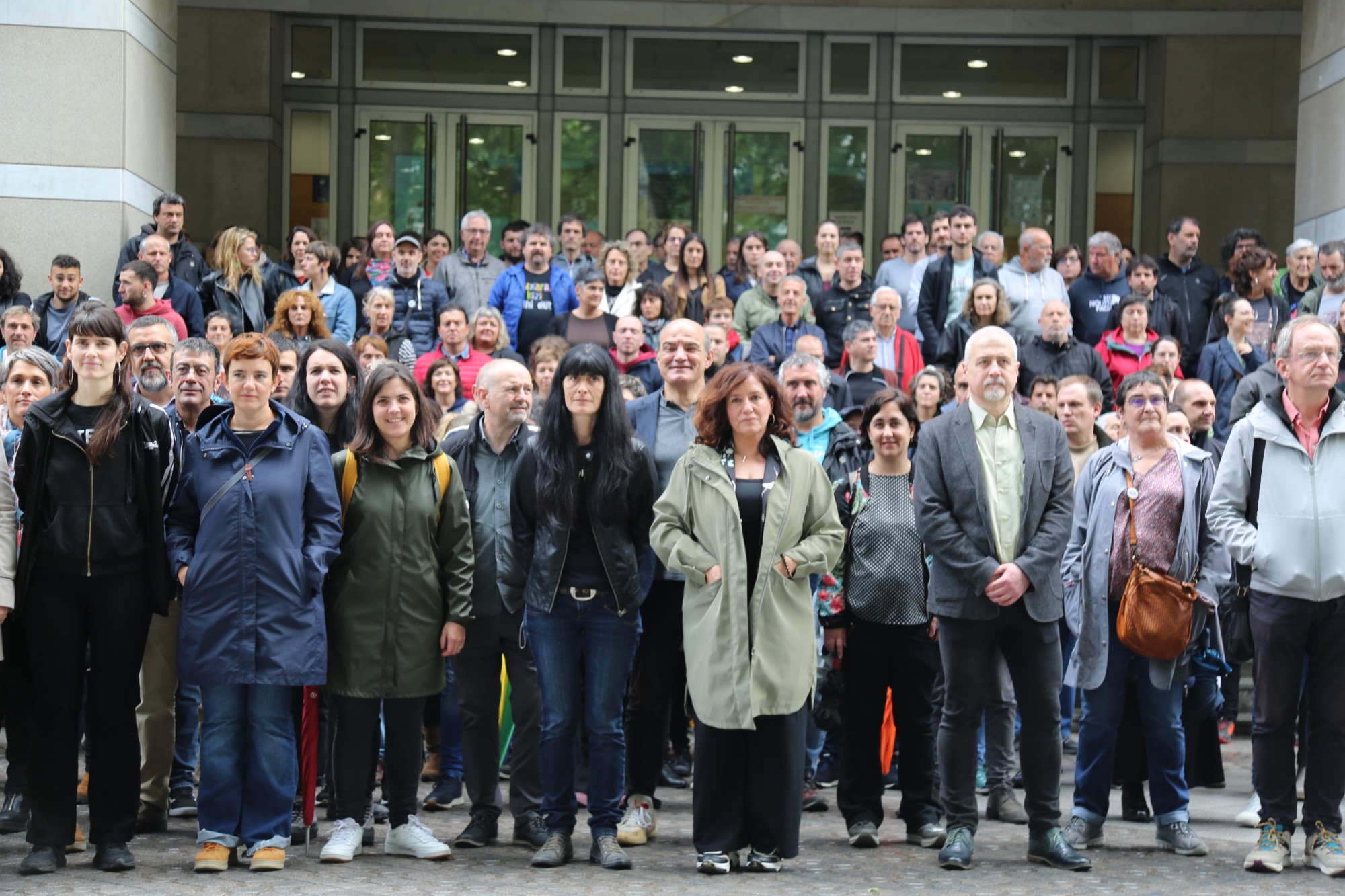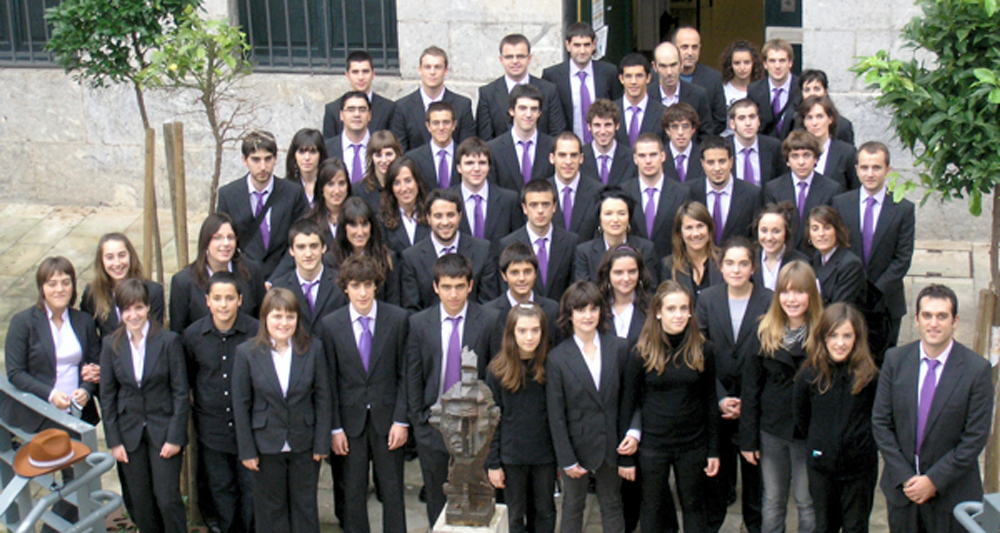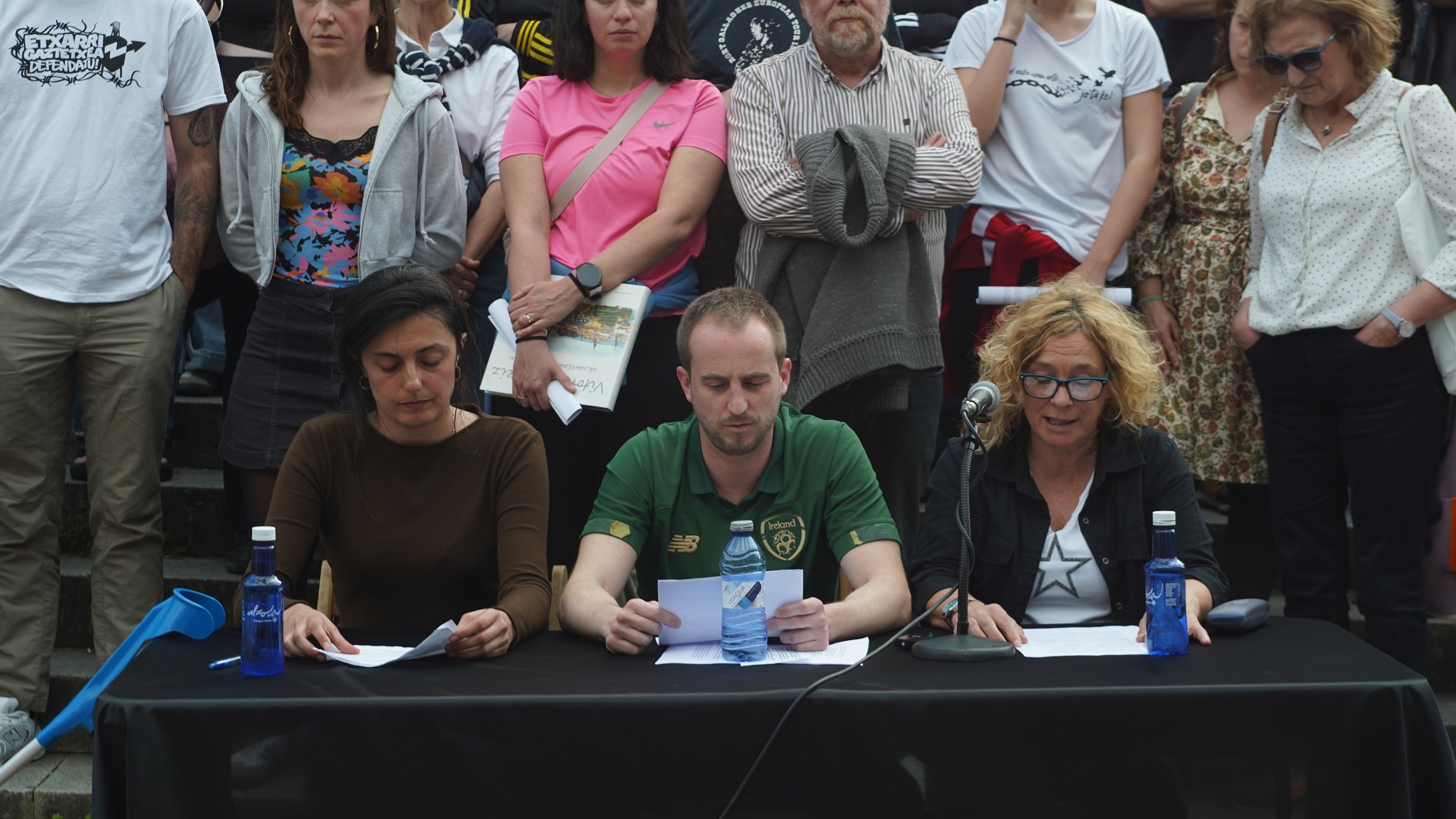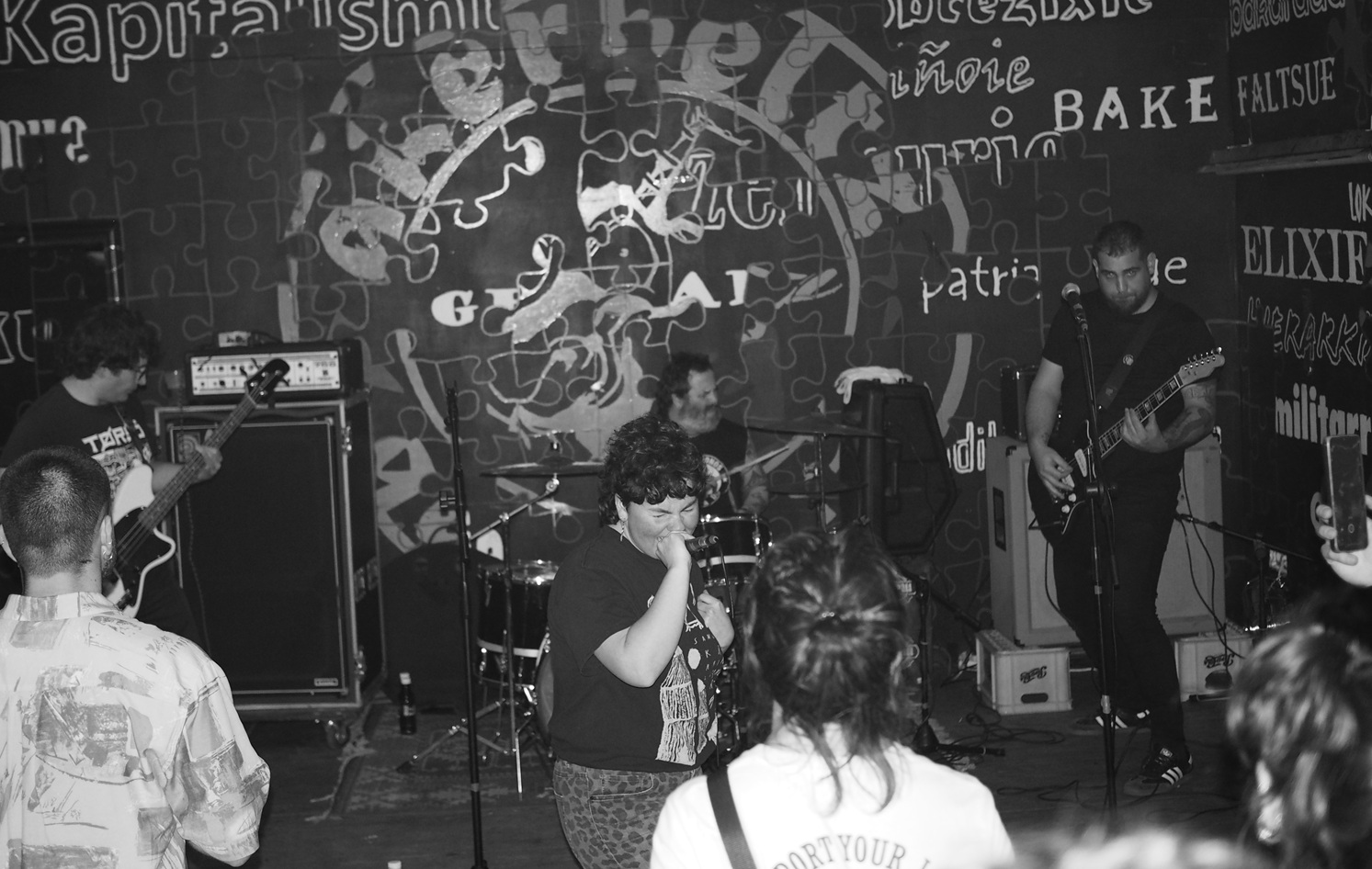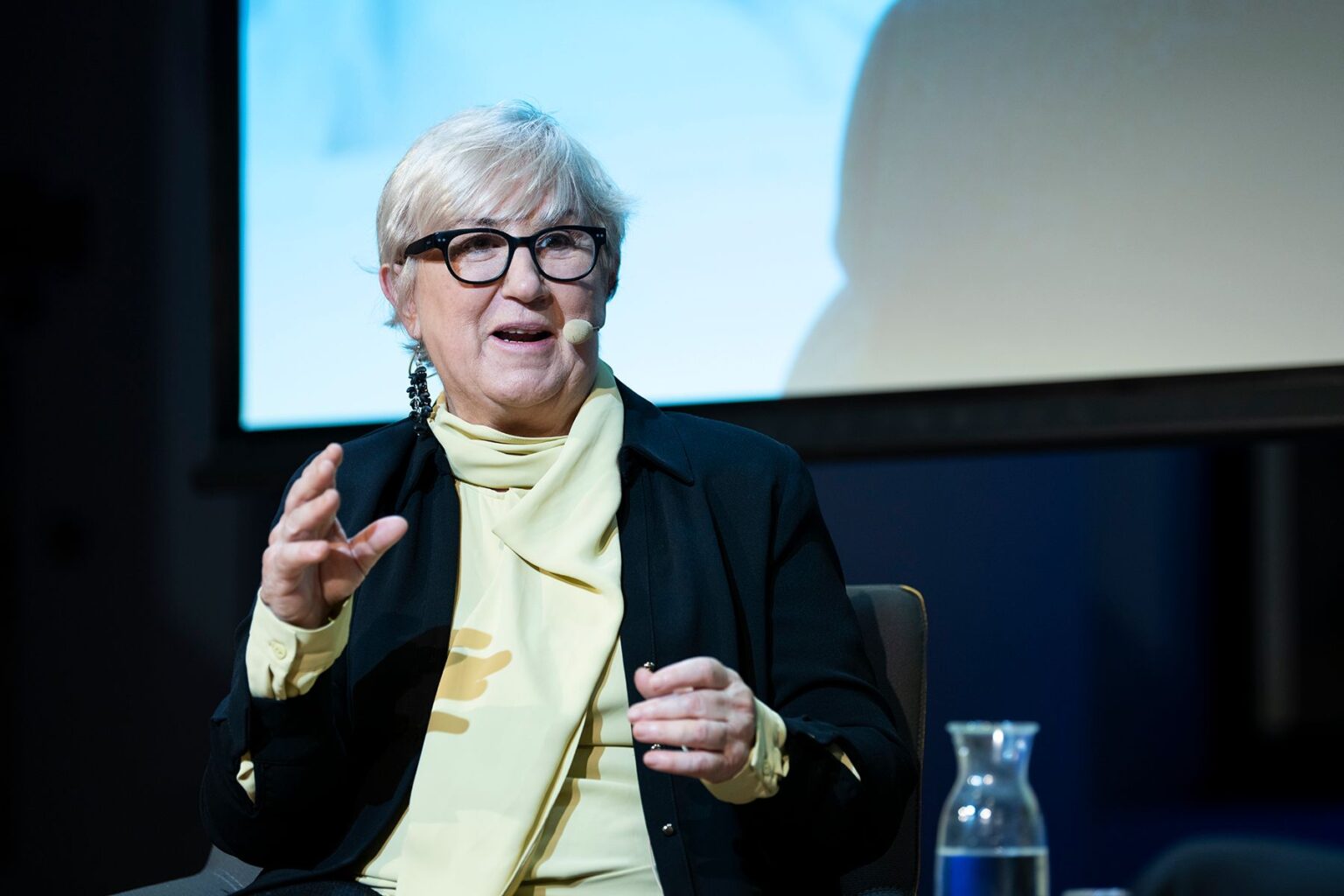Only at home and subordinate
- Many older people live in a difficult situation on a day-to-day basis, as they live in households that do not adapt to their needs and family members, instead of making things easier, treat them harshly. The Basque Government has published a study on the situation of abuse suffered by elderly people living in the home.
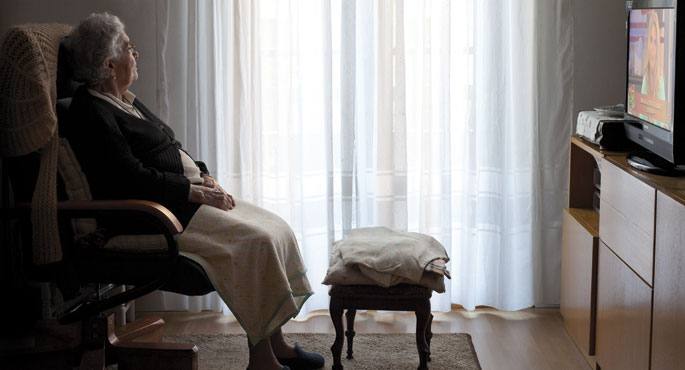
“Let us see if you die once and for all and let us live in peace!” or “Can’t you do that? Yes, you can do it, but you are lazy!” must be tough. Social workers have been heard by the sons and daughters of older people. Clearly, this is not the most common thing, it does not reflect the situation of the majority of older people in society, but it is also not isolated cases. According to the study on the prevalence of ill-treatment of the elderly in the Autonomous Community of the Basque Country carried out by the Basque Government, in the Autonomous Community of the Basque Country approximately 13,249 people could live in similar situations. The results of the study are shown below.
Feelings of loneliness and inconvenience. It is the burden that many have to carry on their backs in the last years of their lives. They go from being active people to feeling like a nuisance, and the attitude of their sons and daughters adds to that feeling.
Thousands of older people live alone in households that do not adapt well to their needs, with little financial support and receiving few visits from their families. The only social escorts who go to domestic chores are the ones you see during the weeks. “It’s not the most common thing, but sometimes we are the only people trusted by the elderly, many times we are the only ones who see a day and have to explain to someone what they have inside,” says the Donostian social worker who works with the elderly.
Companions may spend a maximum of three hours in the elderly's home and the number of hours depends on their situation. As has been said, visits are few, and often are not warm enough, but cold enough, treating the elderly as a stranger. For psychologist Iñaki Abaunz, the lack of visits is not due to the lack of enthusiasm of family members, but to the lack of visits and the inadequate attitude of the visits: “The rhythm of our way of life does not give time for it, because visiting and caring for an older person completely breaks our day to day.” To the responsibility of domestic, child and labor work, to relationships and problems of couples, we must add the care of the elderly, and the current lifestyle does not allow families enough time to adequately attend to the elderly, paying them the attention they need. So instead of treating calmly and calmly, they take care of them abruptly and unwillingly, which makes older people feel like a burden.
In particular, according to the Basque Government’s study, 50% of cases of ill-treatment, most commonly, are psychological. The interviewed social worker coincides with the conclusion of the study: “Most of the time, they don’t stick to them, but the attitude is inadequate and these mistreatment is worse than the physicists, because they are left with a wound that never heals.”
All of this, of course, does not help to improve the mood of the elderly. They often have feelings like sadness, pain or anger. The workers have heard phrases like, “Let’s see if it is true, that I die soon and that it stops being a nuisance!” In this situation, those who, without having any desire, are able to move for themselves, do not leave the house to do the necessary things either. For example, during meals, caregivers have to do hard work to get them to eat.
Accepting dependency is not easy. Change is hard: they go from seeing themselves as active people to feeling upset. When they were active people, they could spend more time with their family and friends, they could do things that they liked and many would take over the custody of their grandchildren. The situation of dependency obliges them to stay at home for almost the entire day, and the relationship with their children and grandchildren varies greatly.
Generating ill-treatment
Some family members have explained that the relationship they maintained with these elderly people before they were in a situation of dependency is important. So, nuts and ynos often tell social workers that they don't want to take care of that person because they've been mistreating them for years. In any case, caregivers think that sometimes children lose respect due to parental submission, they become aggressive on occasions and when they go to visit they decide to be bored to hear their complaints and not reappear for a long time.
There are many factors that influence this type of attitude. On the one hand, there is the fatigue of family members, who have been caring for the elderly for years. And on the other hand, in the family, there are things that have gone ahead. The Social Worker believes that roles often change, as children give parents a treatment they have already received. They are now showing their indignation for a long time, when the elderly cannot stand for themselves. But there are also parents and grandparents who, despite being good, have not been treated back.
Also, the attitude of family members varies according to the situation of the elderly person. The people with the highest degree of dependence are the worst treated, being the most vulnerable the ones with the most responsibility and the hardest work involve their care. Those who suffer the most are those who have a lower degree of dependence, because they realize everything, and they are made an unsustainable situation. People think that older people are like children and don't realize the situation, but they don't, and collaborators get angry when they hear them.
The old man knows a lot, he has to teach him the saying, but sometimes he seems to have forgotten its meaning. There has often been a tendency to contempt and marginalization, to be aware of society and to receive respect and consideration. While they're fine, children also use them to take care of their grandchildren, but at the end of that period, people see them as a burden and society itself takes them away from them. “Many times children also talk to them without respect, because that’s what they’ve seen at home,” says the social worker. Psychologist Iñaki Abaunz is also of the opinion: “The concept of family has changed radically and today we do not count on them, or at least when we talk about the close family.” Abaunz says that this has to be changed, that we have to return to the elderly everything they have given us for years.
On the other hand, the ill-treatment that the research has taken into account not only comes from people but also warns that there are homes that lack resources adapted to the needs of adults. For example, a lift for which you cannot climb the stairs, a shower for those who have trouble entering the bathtub, or special beds for which you have difficulty getting out of bed. However, according to the study, in buildings without elevator there are people over 80 who live on the second and sixth floors, and who have to go down and up more than 85 stairs until the neighbors decide when to put the elevator. The housing of the elderly, in general, is not usually well adapted to live. In many homes, no innovation has been done in 40 years.
Treatment of elderly couples
The treatment of elderly people is not always appropriate. In couples, problems arise, for example, when one of the members has a high degree of dependence and the other has to take care of. When the headaches of old age are added to the need to care for the couple, the person who has always been by their side do not feel as usual, and this can enrage them. Social workers have witnessed cases of mistreatment in couples, screams and shocks, which have been rejected by the police. The Donostian caregiver confirmed this to us: “They don’t understand that their partner has changed so much, and they aggressively show their anger and anger. When the couple is not able to go to the bathroom on their own or does not indicate that they need it, many get angry saying they urinate and poop intentionally.”
1,207 respondents
This is the first analysis carried out in the CAV and the rest of the Basque Country. To work on the subject, they have met with 1,207 people, who have come to their homes and conducted interviews. To this end, a questionnaire has been drawn up in which some have admitted that they suffer ill-treatment, but in other cases it has been the interviewers themselves who have noticed it. The director of the Department of Employment and Social Affairs, Alfonso Gurpegi, has said that the issue is difficult, that the morb is often used, and that they have wanted to avoid it, they have researched very carefully. The main conclusion of the study is that 0.9% of the elderly suffer from maltreatment, mostly women, and that as age increases, more cases can be seen. Looking to the future, the intention is to question people living in households in order to have as broad a view as possible of the situation of the elderly.
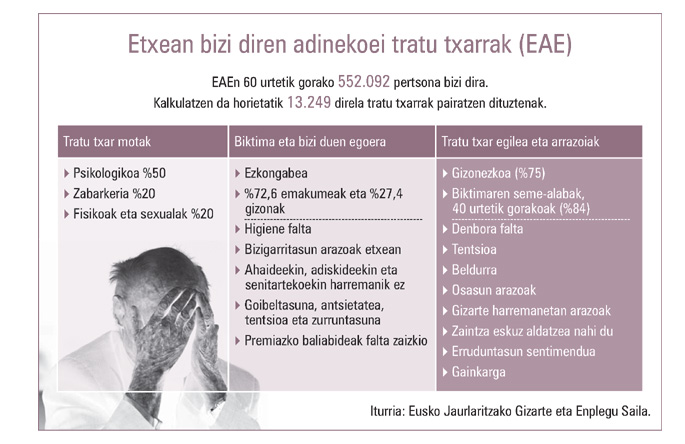
Jaurlaritzaren azterketak ez ditu kontuan hartu zahar etxeak, baina egoitza hauetan ere, etxe partikularretan bezala, egunero adineko pertsonari eguna alaitzera gerturatzen diren senideak daude, astean edo hilean behin agertzen direnak, eta baita inoiz gerturatzen ez direnak ere. Horrek guztiak eragin zuzena du zaharraren egoera animikoan. Bisita gutxi edo bat bera ere jasotzen ez dituzten pertsonak tristeago, haserretuago egoten dira. Aldiz, egunero ordubeteko ikustaldia jasotzen dutenak alaiago daude. “Oso egokia da, ordubetez bada ere, beraiekin egotea eta bakarrik ez daudela sentiaraztea”, dio Gipuzkoan dagoen zaharren egoitza bateko langileak.
Askotan, bisitak jasotzen ez dituztenek inbidia izaten dute ingurukoek jasotzen dituztela ikusita, eta jarrera berekoia izaten dute. “Besteekin duten harreman eskasaren ondorioz beraien jarrera penagarria izaten da”, dio langileak. Indarkeria arazoen atzean batzuetan maitasun falta dagoela sumatuta, familiakoei bisitan joateko eskatzen diete zaintzaileek, senideekin egon ostean zaharren jarrera hobera aldatzen delako gehienetan.
Langileak aitortu digunez, zaintzaileek beraiek ez dute denbora soberan adinekoak zaintzeko: “Zaintzaileak gara, eta lana ahal dugun ondoen eta euren gustura egiten ahalegintzen gara, baina frustrazio guztia gurekin agertzen dute, zaila baita denekin asmatzea. Gu jotzen saiatzera ere heldu dira”. Mundu guztia, dena den, ez dago prestatuta edadetuak etxean izateko, langile honen iritziz: “Gure buruarekin ondo egon behar dugu horrelako pertsona bati laguntzeko. Ardura handia da, eta ondo prestatuta ez bazaude, oso gogorra egiten da. Guztia ondo antolatzen ez baduzu, ezin duzu aurrera eraman, eta orduan arazoak sortzen dira”. Zahar etxeetan baliabideak dituztela dio, adinekoak hobeto zaintzeko eta psikologikoki ere ondo egon daitezen.
Until now we have believed that those in charge of copying books during the Middle Ages and before the printing press was opened were men, specifically monks of monasteries.
But a group of researchers from the University of Bergen, Norway, concludes that women also worked as... [+]
Florentzia, 1886. Carlo Collodi Le avventure de Pinocchio eleberri ezagunaren egileak zera idatzi zuen pizzari buruz: “Labean txigortutako ogi orea, gainean eskura dagoen edozer gauzaz egindako saltsa duena”. Pizza hark “zikinkeria konplexu tankera” zuela... [+]
Aposapo + Mäte + Daño Dolor
When: April 5th.
In which: In the Youth Center of Markina-Xemein.
---------------------------------------------------------
I’ve made my way to the cheese house with the shopping cart full of vegetables, and we’ve spent the evening cutting... [+]












